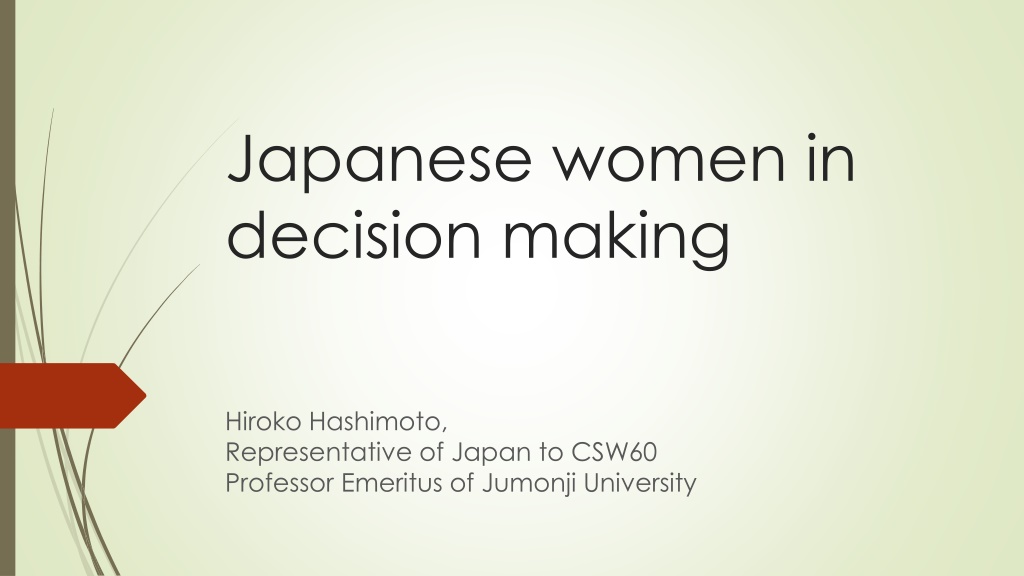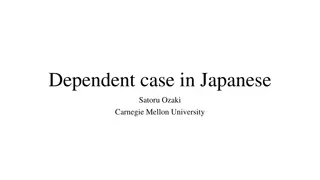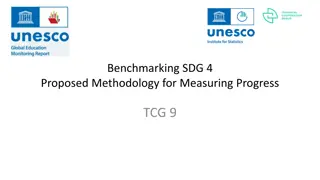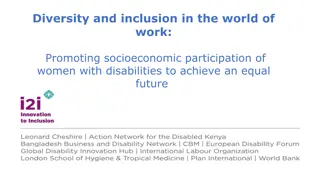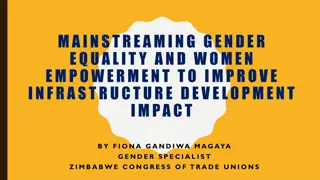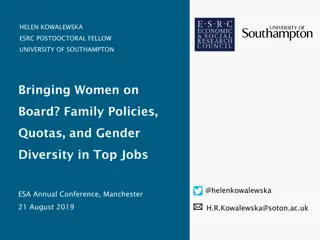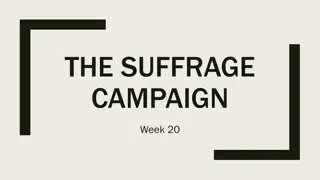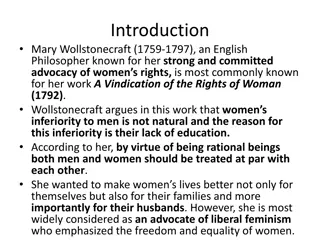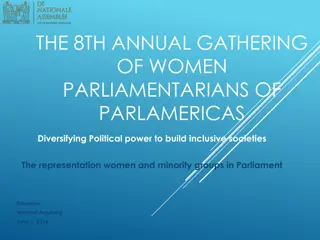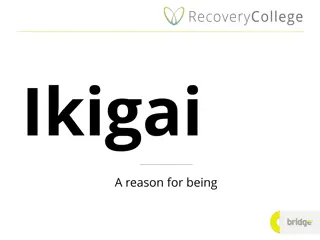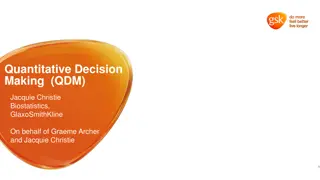Progress and Challenges for Japanese Women in Decision-Making Roles
Japanese women face challenges in decision-making positions, evident in the low ranking on the Global Gender Gap Index. Efforts such as the 2030 Campaign and the Law Regarding Promotion of Active Participation aim to increase female representation. Despite improvements in female participation in politics, Japan lags behind in gender equality. Quota systems are not fully adopted in Japan compared to other countries like Belgium and Italy. The journey towards gender equality and empowering women in Japan continues with ongoing initiatives and legislation.
Download Presentation

Please find below an Image/Link to download the presentation.
The content on the website is provided AS IS for your information and personal use only. It may not be sold, licensed, or shared on other websites without obtaining consent from the author. Download presentation by click this link. If you encounter any issues during the download, it is possible that the publisher has removed the file from their server.
E N D
Presentation Transcript
Japanese women in decision making Hiroko Hashimoto, Representative of Japan to CSW60 Professor Emeritus of Jumonji University
Longevity and Gender Gap Index Source: http://reports.weforum.or/global-gender-gap-report-2015/ the longevity of Japanese women is the highest in the world, Japan s ranking in the 2015 global gender gap index (GGI) is 101 out of 145 countries, which is the lowest among this event s participating countries. Table 1: Comparison of 2015 Global Gender Gap Index rankings Economic participatioin and opportunity Belgium 19 Italy 41 Bulgaria 43 Japan 101 Educational attainment Health and survival Political empowerment Global index 34 111 55 106 1 66 74 42 42 35 24 48 104 58 72 84
2030 Campaign The Second National Action Plan to promote Gender Equality formulated in 2005 emphasized increasing the ratio of decision-making positions held by females to 30% by 2020.This is known as the 2030 Campaign .
Law Regarding Promotion of Active Participation of Women in Their Working Life the Law was adopted by parliament in August 2015 and will take effect on 1 April 2016. Under the law, both private and public offices with more than 300 workers have to formulate publicize plans of action to promote gender equality, including the promotion of women in decision-making roles. Offices achieved better performances could be accredited and
Table 2: Status of women in parliament 1. The situation of women in decision making in Japan A) Women in politics Ranking in lower house female participation Percentage of female members in lower house Percentage of female members in upper house Country 18 42 86 39.30% 31.00% 20.40% 9.50% 50.00% 28.30% - 15.70% Belgium Italy Bulgaria Japan
Female candidates and elected members of the House of Representatives in general elections and the House of Councilors in regular elections
Quota systems in four countries voluntary quota legislated quotas Lower house Upper house X sub- nationalparty Belgium Italy X X no information avaiable in quota database X X Bulgaria Japan X X
Movement to increase women in politics In February 2015, the Multi-partisan Caucus for the Promotion of Women s Active Political Participation was formed by parliamentarians of all major parties. The Caucus formulated a draft Law for the Promotion of Gender Equality in Politics which includes a voluntary quota system to be established by each political party.
Female national employees in managerial positions
Female local public employees in managerial positions
Women in private corporation managerial staff by position
How we can tackle this situation The main barrier preventing Japanese women from becoming decision makers is the presence of strong social norms which consider women to be inappropriate as decision makers. In a 2012 opinion poll on gender equality included a question on professions in which women s participation should be increased. Regarding the position of national parliament member, more than 50% of respondents said that more women should participate in greater numbers.
